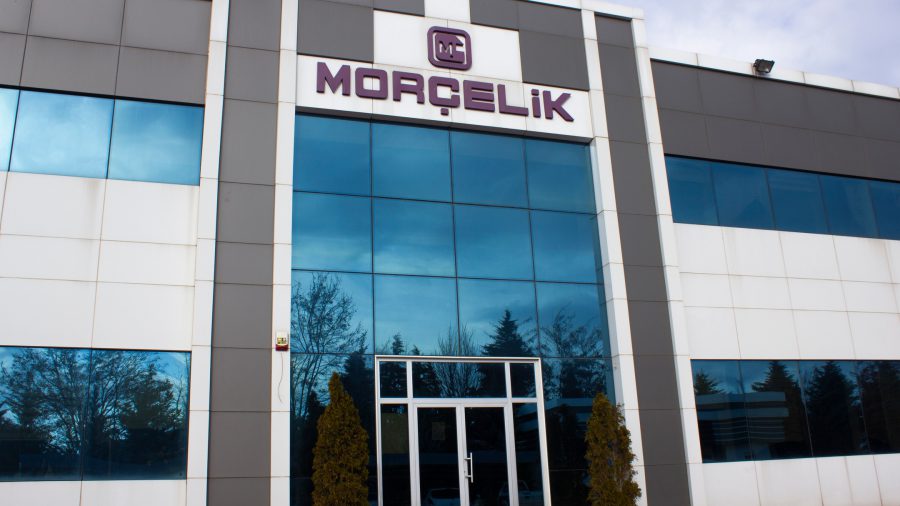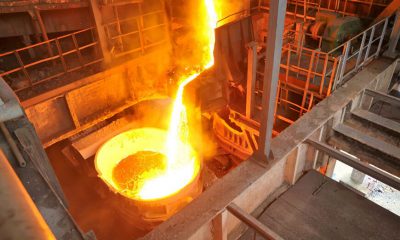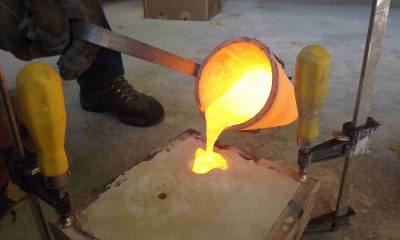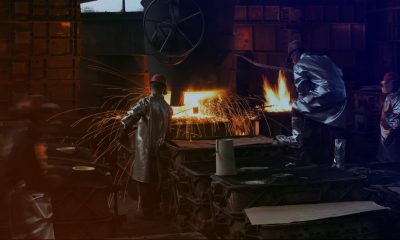
An estimated 90% of all manufactured goods rely on metal foundry work. Whether it is metal casting components for products or the machines required to produce the components for those products, foundries are the backbone of the industrial world. For most, however, metal foundry work conjures images of molten metal-filled vats producing harden steel products for railroads, pipelines, and automobiles. But it is far more than that. It is also cutlery, curtain rods, or custom doors for the corner grocery store and the mega-mall on the edge of town. A foundry is an industrial plant where the essential consumer, commercial, and industrial goods are made. What those goods depend on the foundry itself.
ASK THE IMPORTANT QUESTIONS
Not all foundries are alike. There are a number of factors to consider when deciding on a foundry to work with—a lot more to it than melting metal and pouring it into a mold. For starters, what distinguishes one foundry from another will determine what foundry can meet your business’s needs. What industries does that foundry serve? What are your production and casting requirements? Can it meet your project needs and applications? Does it offer custom work or specialties? Answers to these questions will play a large part in determining which foundry to do business with.
LEARN ABOUT YOUR FOUNDRY OPTIONS
One of the more important factors in your decision is the foundry itself. More metals than iron, steel, or aluminum are cast at foundries. Foundries cast all types of metals and metal alloys. What makes one foundry distinct from another is the metal that the foundry casts. It’s what sets them apart.
Some foundries only work with ferrous metals, i.e., iron or steel, whereas other foundries work only with non-ferrous metals or alloys such as aluminum, bronze, zinc, etc. When considering which foundry fits your application, you will need to know if that foundry works with the metal or metals of your application.
CONSIDER THE TYPE OF CASTING NEEDED
The type of casting needed will also be a determining factor in choosing a foundry to work with. Castings are most commonly performed with sand, dies, or ceramic molds.
SAND CASTING
Sand casting is perhaps the most widely used method of casting because of its flexibility, high heat resistance, and lower associated costs than the other methods. What’s more, all metals can be cast with sand to any size, weight, or specification. Sand casting also allows the creation of castings with complex geometries.
DIE CASTING
Dies, which refers to the steel molds used for casting, is a high-pressure injection process. Die casting requires sufficient lead time and high upfront costs to produce the molds, but is ideal for high production runs.
FURNACES AFFECT PRODUCTION QUANTITY
Beyond casting, you’ll need to know what furnaces are at work in the foundry. Electric arc furnaces are used for steel. Induction furnaces are preferred with metals such as copper, zinc, or aluminum and metal alloys such as bronze. Your foundry’s furnace size is also important in relation to your production quantities. Furnaces can run from small tabletop size equipment to several tons in size.
THINK ABOUT CUSTOM PROJECT NEEDS
Your project needs and applications are other factors to consider in selecting a foundry, as are its value-added services. Which industries a foundry serves directly relates to your project needs and the product’s applications. The wider range of industries that a foundry serves and the services it provides speak volumes for its capacity to fulfill your project needs and meet your application requirements in a cost-effective, timely manner. There are a variety of industries that foundries may serve, including but not limited to:
- Aerospace
- Automotive
- Biotech
- Electronics
- Firefighting
- Imaging
- Medical
- Packaging
- Military
When making your decision consider that higher-quality metal foundry work will more likely be found at a plant that services all of them. One that provides value-added services that can meet your design and production requirements, or other needs like heat treating, machining, assembly, powder coating, anodizing, and the like, is highly desirable.


 Türkçe
Türkçe Deutsch
Deutsch

